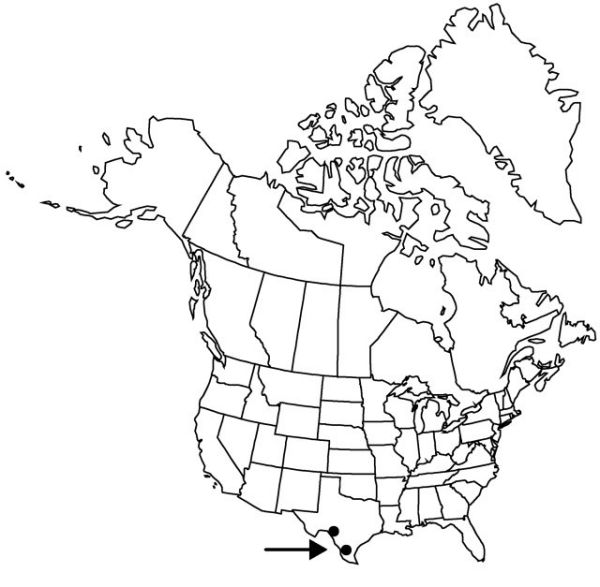Agave weberi
Bull. Mus. Natl. Hist. Nat. 7: 231. 1901.
Plants short-stemmed, commonly suckering, without rhizomes, trunks 0.4–1 m; rosettes not cespitose, 12–14 × 20–30 dm. Leaves erect or recurving, 110–160 × 12–18 cm; blade green or grayish green or yellowish green, not cross-zoned, lanceolate, pliable, adaxially concave or guttered at least toward apex, abaxially slightly convex; margins straight, finely fibrous, minutely armed only near base or teeth absent, teeth single prickles, 1–2 mm, less than 1 cm apart; apical spine brown to grayish, subulate, 3–4.5 cm. Scape 6.5–8 m. Inflorescences paniculate, open, sometimes bulbiferous; bracts persistent, triangular, 0.5–2 cm; lateral branches 15–25, horizontal to slightly ascending, comprising distal 1/3–1/2 of inflorescence, longer than 10 cm. Flowers 15–27 per cluster, erect, 7–8 cm; perianth yellow, tube urceolate, 15–20 × 14–19 mm, limb lobes erect, subequal, 20–24 mm; stamens long-exserted; filaments inserted ca. mid perianth tube, erect, yellow to yellow-green, 5.5–6 cm; anthers yellow, 30–31 mm; ovary 3.3–4 cm, neck unconstricted, 2–4 mm. Capsules short-pedicellate, oblong, 5.5 cm, apex beaked. Seeds unknown.
Phenology: Flowering late spring–early summer.
Habitat: Sandy places with grasses and low shrubs
Elevation: 100–300 m
Distribution

Introduced; Tex., ne and c Mexico.
Discussion
Agave weberi is locally naturalized in southern Texas. It is frequently cultivated elsewhere for its ornamental value, pulque, and fiber.
Selected References
None.